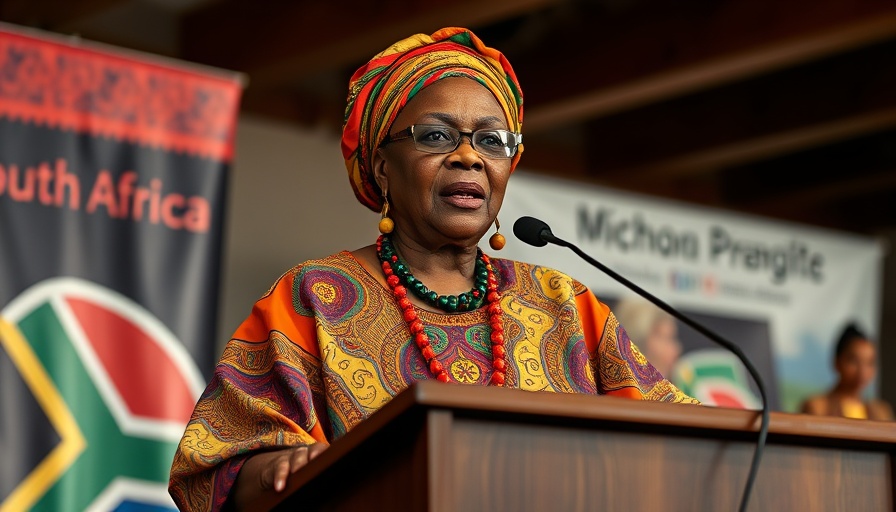
Understanding the Pulse of South Africa's Complex Landscape
In recent weeks, South Africa has faced a plethora of challenging stories that shed light on the multifaceted issues permeating its socio-political landscape. From the recent positive reception of Willie’s honesty, showcased through social media, to alarming reports of corruption surrounding job recruitment at a Soweto school, the week’s headlines underline a volatile mix of public sentiment and institutional integrity. These stories resonate deeply within the context of South African politics, where the ANC and other political parties like the Democratic Alliance and EFF grapple with issues of credibility and accountability amidst looming national elections.
Corruption: A Lingering Menace
The Soweto school job scandal exemplifies the persistent plague of corruption that dampens public trust in government institutions. Reports detailing cash-for-job schemes not only highlight individual malfeasance but also underline systemic dysfunction within government hiring processes, which can contribute to broader challenges like unemployment and ineffective service delivery—a critical concern as the nation navigates economic recovery.
State Capture and Accountability
This dual crisis of corruption and accountability evokes memories of the 'state capture' era, a term that has become synonymous with the mismanagement and exploitation of South African resources for personal gains by those in power. News stories surrounding this issue have not only kept the public informed about the prosecutions of involved parties but also reflect a rampant demand for deeper political reforms, including increased scrutiny on public sector operations.
The Role of Political Parties in Shaping Outcomes
The ANC, facing increasing pressure from both voters and rival parties, must grapple with its image and past, as it simultaneously represents continuity and change in South African governance. The contrasts highlighted by other parties such as the EFF and DA bring urgent questions to the forefront about effective governance models that can genuinely serve the electorate, especially marginalized communities often left behind in the decision-making process.
Implications of Economic Policies
As South Africa moves towards national elections, the role of economic policies cannot be overstated. Challenges such as the Eskom crisis, load shedding, and high unemployment rates create a tumultuous environment for voters seeking solutions. In this context, how political parties address these pressing issues will likely determine their success at the polls. Each party's stance on issues like tax reforms, public service investing, and educational reforms will undoubtedly shape the electoral landscape.
Current Events: A Reflection of Societal Values
Willie’s story has an underlying message of integrity, contrasting sharply with the narratives surrounding bribery and corruption. It serves as a poignant reminder that honesty, even in the face of corrupt systems, is a quality to be cherished and emulated. Public sentiment is gradually shifting, as voters are increasingly demanding leaders who demonstrate ethical standards and transparency, especially in light of the chaos that has characterized recent political displays.
The Road Ahead: Navigating Future Challenges
As South Africa gears up for the upcoming elections, public awareness will be the cornerstone in ensuring accountability. Citizen engagement through protests, which have become a staple for voiced discontent, reflects a society unwilling to remain silent about corruption and irregularities. Grassroots movements are likely to gain momentum as political players prepare to outline their visions for a better, transparent South Africa.
What Citizens Should Know
For the professionals and citizens following these narratives, understanding the interplay between politics, accountability, and economic reform is crucial. The implications of each election decision will resonate well beyond the electoral years and can define the trajectory of governance and development in South Africa.
 Add Row
Add Row  Add
Add 




Write A Comment